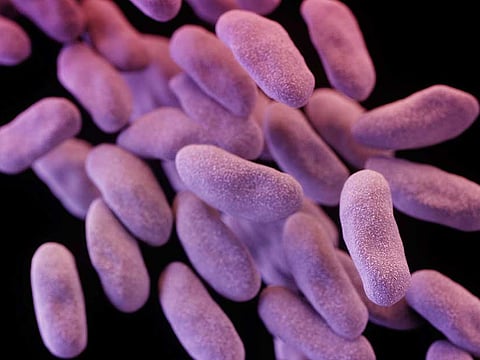Superbug spreads through tainted poultry
Study underscores importance of reducing the use of antibiotics in food-producing animals to boost their growth

WASHINGTON: A new form of a dangerous “superbug” may be spreading to humans through contaminated poultry that people handle or eat, according to a study published on Wednesday.
Researchers focused on a newly identified strain of the bacterium known as MRSA, or methicillin-resistant Staphylococcus aureus, that they found in people in Denmark. Although most individuals who become infected with MRSA don’t get it from food, the study suggests that this poultry-associated strain may be more easily transmitted from food to people.
The findings underscore the importance of reducing the use of antibiotics in food-producing animals to boost their growth, the researchers say. The issue is expected to be discussed prominently at an unusual meeting at the United Nations on Wednesday. The high-level summit focused on the rising threat posed by superbugs, microbes that can’t be stopped with drugs. It is only the fourth time that the world’s decision-makers have addressed a health concern at the UN General Assembly.
MRSA, which is resistant to several antibiotics, is commonly found in locker rooms, hospitals, military barracks and other settings where large numbers of people congregate. The bacteria can cause serious infections, including pneumonia and bloodstream infections that can cause life-threatening sepsis.
Until now, researchers have known that livestock can carry the bacteria, putting farmers, farmworkers, veterinarians and others who work directly with animals at greater risk. MRSA bacteria have also been shown to be present in foods, including pork, beef and dairy, although outbreaks from food contamination have been rare.
“This shows that everyday consumers — the general public — are also potentially at risk,” said Lance Price, a member of the research team and director of the Antibiotic Resistance Action Centre at George Washington University.
As part of the study, published in the journal Clinical Infectious Diseases, US and Danish researchers utilised a national, multi-year MRSA database at the Statens Serum Institut in Copenhagen. They identified 10 people in urban areas who had carried or been infected with this new strain. None had worked on farms or had direct exposure to food animals. Regardless, no Danish livestock showed evidence of this particular type of bacteria.
Using genetic analysis to compare the strain found in the 10 study subjects and those found in people, livestock and food products from other European countries, the researchers were able to trace the bacteria to poultry imported from other countries, including France, Germany, Italy and the Netherlands.
Samples of the strain in the Danes were virtually identical, a finding that suggests all of the individuals were exposed from a common source, most likely contaminated chicken or turkey.
“Our findings implicate poultry meat as a source for these infections,” said Robert Skov, a researcher at the Copenhagen institute.
Sign up for the Daily Briefing
Get the latest news and updates straight to your inbox



